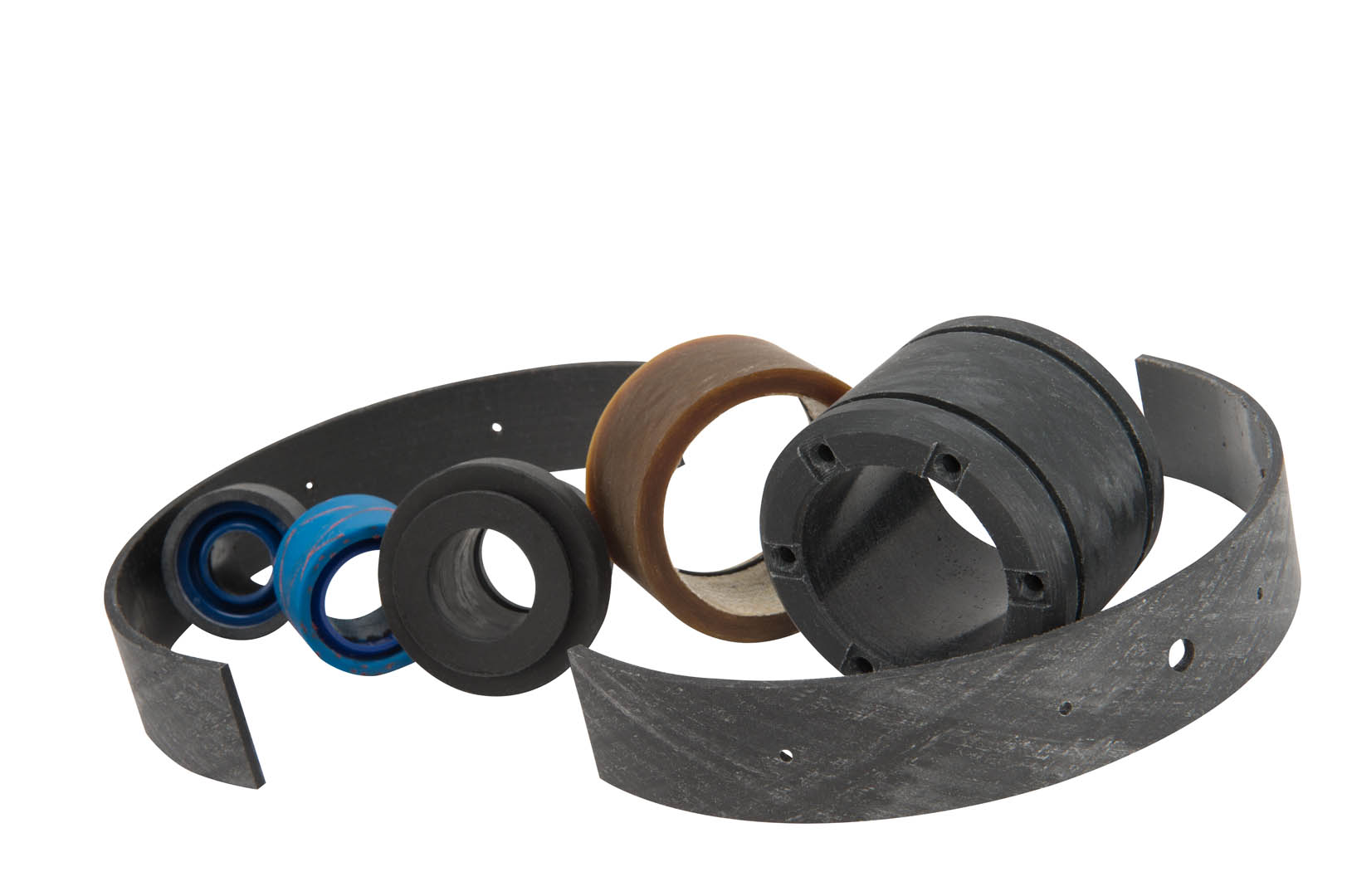
Polygon Company, which makes composite tubing, bearings, and pneumatic cylinders, has developed a new range of custom and standard composite plain bearings/bushings, suitable for construction and mining equipment such as wheel loaders, excavators, back hoes, and compact track loaders.
The bearings are made of continuous filament-wound glass fibers, polymer resins, and polytetrafluoroethylene (PTFE) fabric liners. The glass fiber filament and epoxy resin combine together to form a high strength backing and the filament-wound glass fiber structure allows for thin-walled, lightweight bearings, Polygon says. The bearings are typically retained through outside diameter (OD) interference fit.
PolyLube composite bearings have high load-bearing capacity, low frictional values and corrosion resistance and are self-lubricated, the company says. This can reportedly reduce maintenance labor costs and increases the maintenance interval before maintenance is required on rental equipment. Polygon composite bearings can also be used in high-cycle agricultural equipment such as implements, foraging and harvesting equipment, applicators, carts, and spreaders. They are field retrofittable and can replace existing metallic bushings without changing mating parts, so they can be used to improve wear material without requiring complete equipment redesign, the company says.
This story uses material from Polygon, with editorial changes made by Materials Today. The views expressed in this article do not necessarily represent those of Elsevier.






